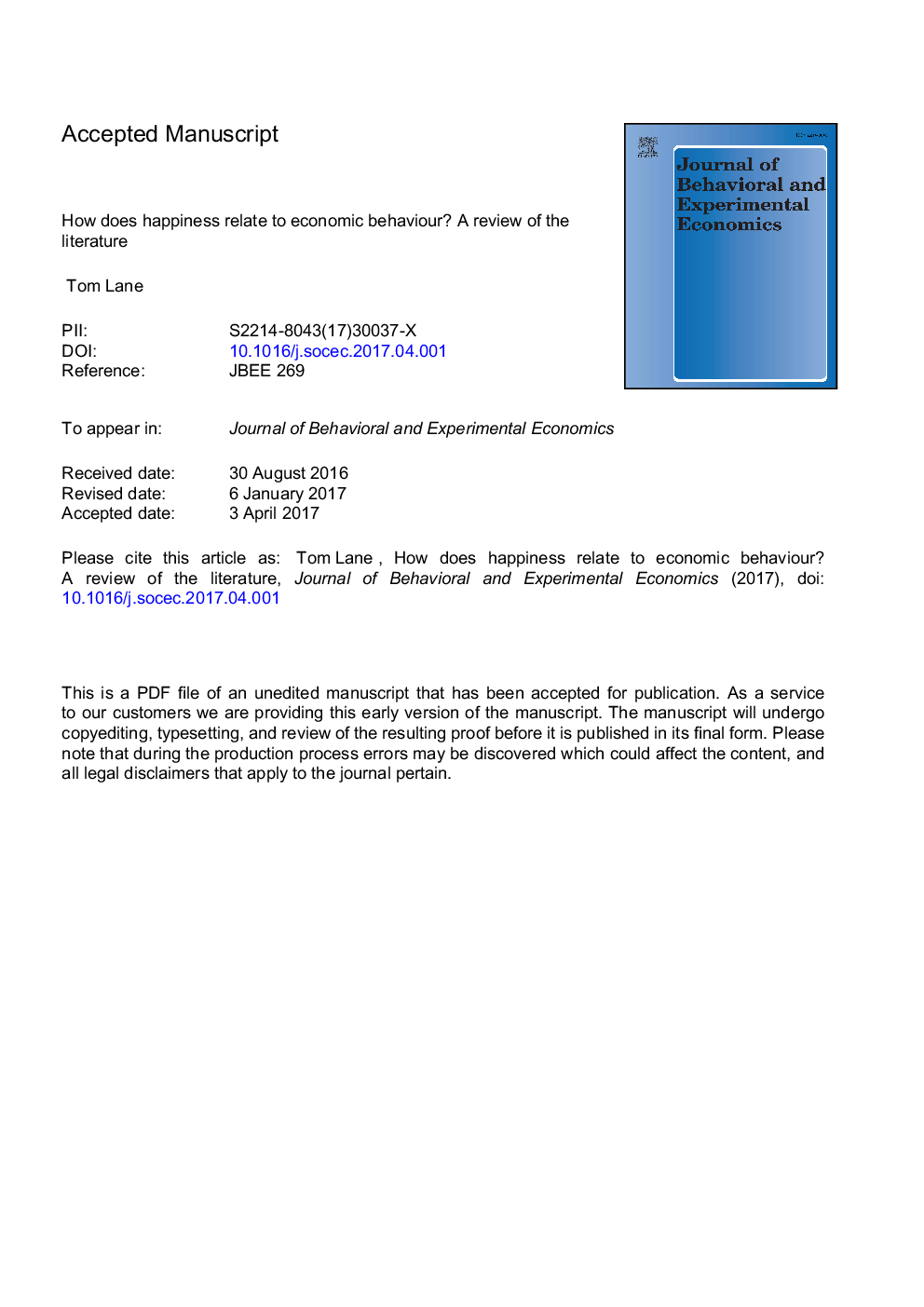ترجمه فارسی عنوان مقاله
شادی با رفتار اقتصادی ارتباط دارد؟ مروری بر ادبیات
عنوان انگلیسی
How does happiness relate to economic behaviour? A review of the literature
| کد مقاله | سال انتشار | تعداد صفحات مقاله انگلیسی |
|---|---|---|
| 91329 | 2017 | 44 صفحه PDF |
منبع

Publisher : Elsevier - Science Direct (الزویر - ساینس دایرکت)
Journal : Journal of Behavioral and Experimental Economics, Volume 68, June 2017, Pages 62-78
ترجمه چکیده
این مقاله بررسی رابطه بین شادی (رفاه ذهنی) و رفتار اقتصادی را بررسی می کند. من توضیح می دهم که چگونه روش های تجربی و غیر تجربی در سراسر علوم اجتماعی مورد استفاده قرار گرفته است تا بتوانند به بررسی چگونگی شادی و گرایش های خاص رفتاری بپردازند. من رفتار بین فردی (خودخواهی، اعتماد و روابط متقابل) و رفتار فردی (ریسک و تنظیمات زمان) را در نظر می گیرم. با توجه به رفتار بین فردی، نتیجه گیری کلی این است که خوشبختی حاصل از رفتار طرفدار اجتماعی است. خوشبختی با خودخواهی منفی ارتباط دارد و با اعتماد رابطه مثبت دارد؛ در هر دو مورد شواهد قوی وجود دارد که رفتار یک علت خوشبختی است به عنوان یک نتیجه از آن. افراد نیز شادی می گیرند از مجازات های گران قیمت برای کسانی که به آنها آسیب رسانده اند، لذت می برند، هرچند خوشحال می شوند که درجه ای است که مردم می خواهند از این مجازات اجتناب کنند. با توجه به رفتار فردی، با وجود تحقیقات زیادی در مورد موضوع، رابطه بین خوشبختی و ترجیحات ریسکی هنوز معلوم نیست، در حالی که شواهدی وجود دارد که خوشبختی با کاهش بی قراری بر تنظیمات زمان تاثیر می گذارد. در تمام موارد، من بین تمایلات طولانی مدت و کوتاه مدت بین شادی و رفتار تمایز قائل هستم.

